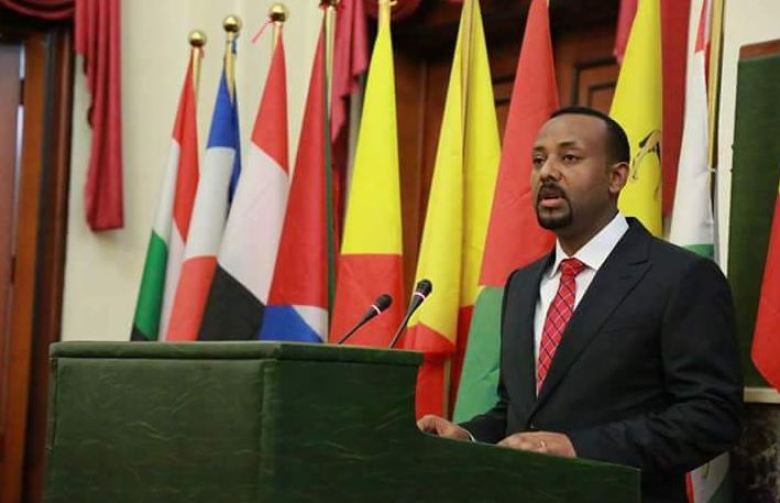
(ADDIS FORTUNE) – Hailemariam Desalegn occupies a rare spot in Ethiopia`s political history. He marks one of the few instances of a person that entered leadership as peacefully as he will exit it once his successor, Abiy Ahmed (PhD), is installed by parliament tomorrow. He is leaving a government in a crisis of legitimacy – the sort of public discontent that dwarfs the post-election unrest of 2005, both in breadth and intensity.
Hailemariam’s resignation was accepted by the Council of the EPRDF this past week, as was Abiy’s election as only the third chairman of the ruling coalition. Both decisions earned the majority of the EPRDFites’ blessing, while an outburst of delight received the latter by parts of the public.
In more ways than one, the change of guard in leadership is more of a form than substance. The process in which Abiy rose to power signalled a cultural transformation within a political party whose legacy is deeply rooted in the political left. Those on the left believe it is not a revolutionary mark to campaign for high offices; that lobbying and direct persuasions for appointment is no less than sinful; and promoting the politics of compromise is a slippery slope.
To his credit, Abiy has dispelled this cultural wall and succeeded in getting himself elected to the highest office in the party and of the country. Being a soft-spoken person and holding patriotic views have endeared him to the public; his membership to the Oromo Peoples` Democratic Organisation (OPDO), one of the parties that make up the EPRDF, has made his victory interesting. The Organisation represents, in government, an ethnic group that is not only the most populous in Ethiopia but also the most restive this past couple of years.
Few can presume the task that faces him would be a walk in the park. But many expect of him to persuade the public at large that the ruling coalition is legitimate; that the next general elections, or the local ones this year, would be free and fair; and that democratic institutions will stand on the side of citizens as opposed to the incumbents.
The veterans in the Revolutionary Democratic camp believe the challenge each generation faces creates its own leader. They now have one in a young man born in Beshasha, a small town west of Addis Abeba, in the Oromia Regional State. He is rare for a government official who enjoys what amounts to public enthusiasm.
In a time of widespread discontent, such as the one Ethiopia is experiencing, this will come in handy. It helps him secure a foothold in the national discourse, one where he could forward ideas people are willing not to disregard automatically. It could also bring respite to the privatisation and regularisation of violence as has been witnessed since the protests began. That public support can also give the one-time Minister of Science & Technology the courage in his conviction to take the intractable EPRDF machine by the horns.
This is a ruling coalition whose officials have only grown emboldened with an expanding economy. The ideological imprints of Revolutionary Democracy – of economic and social development as a means to gaining political legitimacy – has only festered. […] CONTINUE READING
VIDEO




